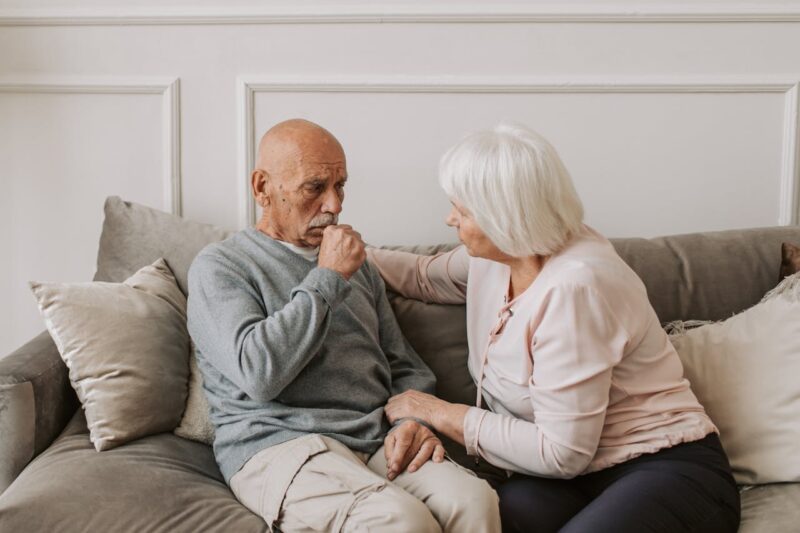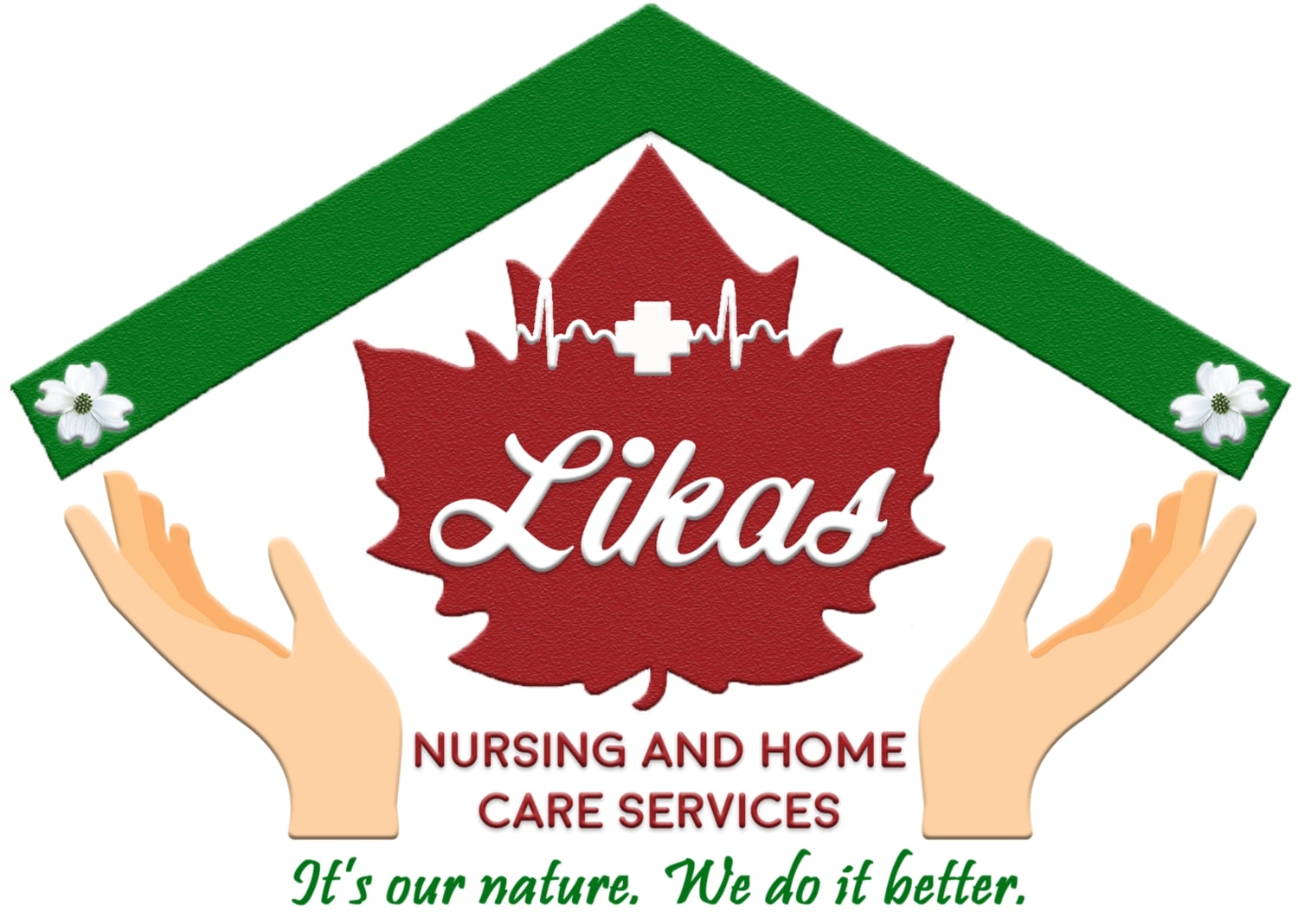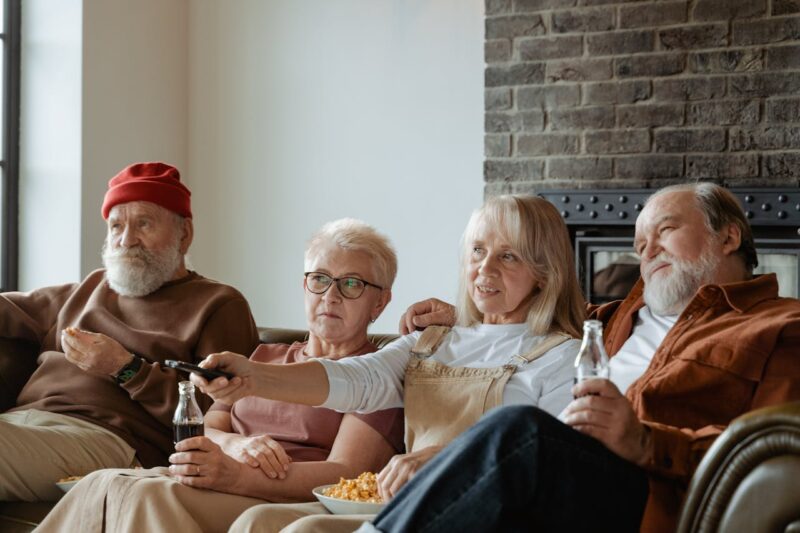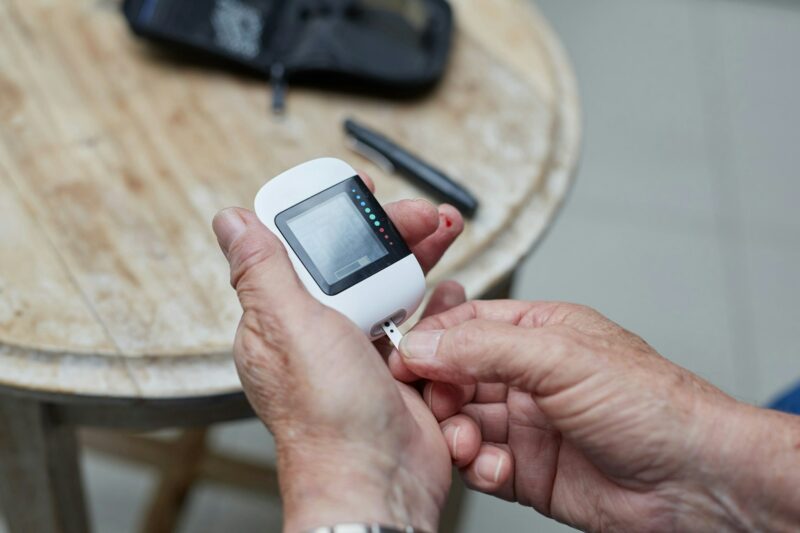
Preventing pneumonia in the elderly is crucial for their health. This age group is more vulnerable to respiratory infections. Simple steps can make a big difference. Regular vaccinations, like the flu shot and pneumococcal vaccine, are essential. Encouraging good hygiene practices helps too. Proper nutrition strengthens their immune system. Staying active keeps lungs healthy and reduces risks.
Family members should monitor any changes in health. Early detection of symptoms leads to better outcomes. Creating a smoke-free environment is vital for lung health. Understanding these strategies empowers caregivers and loved ones. Together, we can reduce the risk of pneumonia and improve quality of life for our seniors.
Understanding Pneumonia in Seniors
Definition
Pneumonia is an infection that inflames the air sacs in one or both lungs. This condition can be caused by bacteria, viruses, or fungi. Pneumonia in seniors is especially concerning. Older adults often face more severe complications. The average hospitalization rate for pneumonia in this age group is higher than in younger populations.
Importance of Vaccination
Pneumococcal Vaccination
Pneumonia is a serious risk for the elderly. The pneumococcal vaccine plays a crucial role in preventing this disease. It protects against infections caused by pneumococcus bacteria. These bacteria can lead to severe pneumonia and other complications.
Seniors should receive the pneumococcal vaccination. The Centers for Disease Control and Prevention (CDC) recommends it for adults over 50 years old. This vaccine can reduce the risk of hospitalizations due to pneumonia significantly. Studies show that vaccinated seniors have lower rates of pneumonia compared to those who are unvaccinated.
Annual Influenza Vaccinations
Annual influenza vaccinations are equally important. Influenza can lead to pneumonia, especially in older adults. The flu weakens the immune system, making it easier for infections to take hold. By getting the flu shot every year, seniors can reduce their chances of developing pneumonia.
The CDC advises everyone over six months old to get the flu vaccine yearly. This helps create a barrier against viral infections that could trigger pneumonia. Many studies indicate that flu vaccinations decrease the number of pneumonia cases among seniors.
Lowering Hospitalizations
Vaccines significantly lower hospitalizations and complications in seniors. Data shows that vaccinated individuals experience fewer severe health issues related to pneumonia. They are less likely to require hospitalization after contracting respiratory infections.
For example, research published in medical journals indicates that pneumococcal vaccines can cut hospitalization rates by up to 40%. Flu vaccines have shown similar results. They help prevent severe illness and reduce emergency room visits.
Seniors often face more significant health risks from pneumonia due to age-related factors. Their immune systems may not respond as effectively as younger individuals. Therefore, staying updated on vaccinations is essential for protecting their health.
Summary of Benefits
Protects against serious infections
Reduces hospitalization rates
Lowers risk of complications
Enhances overall health outcomes
Vaccinations are vital in safeguarding elderly individuals from pneumonia. They provide a critical defense against infectious diseases that can have devastating effects on older adults. Regular check-ups with healthcare providers ensure that seniors receive necessary vaccines on time.
Practice Good Hand Hygiene
Regular Handwashing
Regular handwashing is essential. It helps eliminate germs that can lead to infections. Washing hands with soap and water removes dirt and bacteria effectively. The Centers for Disease Control and Prevention (CDC) recommends washing hands for at least 20 seconds. This simple act can significantly reduce the risk of respiratory infections, including pneumonia.
People should wash their hands after using the restroom, before eating, and after coughing or sneezing. This practice is especially important in crowded places where germs spread easily. Keeping hands clean protects not only oneself but also those around them.
Use Hand Sanitizers
Hand sanitizers are a good alternative when soap and water are not available. They can kill many types of bacteria and viruses. Choose a sanitizer that contains at least 60% alcohol for effectiveness. Apply enough product to cover all surfaces of your hands. Rub them together until they feel dry.
Using hand sanitizers in public places is especially important. Public transportation, shopping malls, and healthcare facilities often have high levels of germs. Carrying a small bottle of hand sanitizer can help maintain hygiene on the go.
Awareness of Hygiene Importance
Awareness about hygiene plays a crucial role in preventing infections. Many people underestimate how easily germs can spread. Touching surfaces like doorknobs or elevator buttons can transfer bacteria to your hands. If these germs enter the body, they can cause serious health issues.
Educational programs can help raise awareness about proper hygiene practices. Schools, community centers, and healthcare providers should promote this information. Understanding how to prevent bacterial infections can save lives, particularly among the elderly.
Avoiding Infectious Items
Avoid touching infectious items whenever possible. This includes shared objects like utensils or towels in public spaces. If you must use these items, make sure to wash your hands immediately afterward.
Infectious items can harbor harmful bacteria that lead to illnesses such as pneumonia. Being cautious helps minimize exposure to these risks.
Avoid Smoking and Pollutants
Smoking Effects
Smoking significantly harms lung health. It leads to chronic lung problems. These issues make the lungs more susceptible to infections like pneumonia. Smokers often experience increased coughing and mucus production. This buildup can block airways, making breathing difficult.
Research shows that smokers are at a higher risk of developing pneumonia than non-smokers. The harmful chemicals in cigarettes weaken the immune system. This weak immunity makes it harder for the body to fight off infections. Quitting smoking is vital for older adults. It can improve lung function and lower the risk of respiratory diseases.
Air Pollution
Exposure to air pollutants also poses serious risks. Both indoor and outdoor pollution can affect lung health. Common indoor pollutants include dust, mold, and smoke from cooking or heating appliances. Outdoor pollutants come from vehicle emissions and industrial activities.
Elderly individuals are particularly vulnerable to these pollutants. They may already have weakened lungs due to age or pre-existing conditions. Reducing exposure to these harmful substances is essential for preventing pneumonia.
Creating a Smoke-Free Environment
Creating a smoke-free environment is crucial for respiratory health. This means not only quitting smoking but also ensuring that others do not smoke around you. Secondhand smoke is just as harmful as direct smoking.
Families should work together to maintain a smoke-free home. Encourage loved ones who smoke to quit or seek help from professionals. Support groups and counseling services can provide valuable assistance.
Using air purifiers can help reduce indoor pollutants. Clean air reduces irritation in the lungs, which helps prevent respiratory infections such as pneumonia.
Practical Steps
Here are some practical steps to minimize exposure:
Quit Smoking: Seek resources to help stop smoking.
Avoid Secondhand Smoke: Keep your living space free from tobacco smoke.
Use Air Purifiers: Invest in devices that clean indoor air.
Ventilate Homes: Open windows regularly to allow fresh air circulation.
Limit Outdoor Exposure: Stay indoors on days with high pollution levels.
Monitor Health Regularly
Schedule Check-Ups
Seniors should schedule routine check-ups with their healthcare providers. Regular visits allow doctors to monitor vital signs closely. These appointments help detect any health issues early. They can also provide necessary vaccinations, such as the pneumonia vaccine.
Routine check-ups are especially important for those with chronic conditions. Conditions like diabetes or heart disease can increase the risk of pneumonia. By managing these conditions effectively, seniors can lower their chances of developing pneumonia.
Manage Chronic Conditions
Managing chronic conditions is crucial in preventing pneumonia. Many elderly individuals have long-term health issues that require attention. For instance, uncontrolled diabetes can lead to weakened immunity. This makes it harder for the body to fight infections.
Blood pressure and cholesterol levels should be monitored regularly. Keeping these numbers in check helps maintain overall health. Seniors must follow their doctor’s advice regarding medications and lifestyle changes. This proactive approach reduces the risk of complications, including pneumonia.
Track Health Changes
Keeping track of any changes in health status is vital. Seniors should pay attention to symptoms like cough, fever, or difficulty breathing. Noticing these symptoms early allows for prompt medical intervention. Reporting these changes to a doctor can lead to quick treatment.
Journaling daily health updates can be beneficial. Seniors can write down any new symptoms or changes they observe. This record provides valuable information during doctor visits.
Family members should also be involved in monitoring health changes. They can help notice signs that seniors might overlook. Open communication between family and caregivers fosters better health management.
Importance of Hydration and Nutrition
Hydration and nutrition play a significant role in maintaining health. Seniors should drink plenty of fluids to stay hydrated. Proper hydration supports respiratory health and helps thin mucus in the lungs.
Eating a balanced diet rich in vitamins and minerals boosts immunity. Foods high in vitamin C, like oranges and broccoli, strengthen the immune system. A healthy diet combined with regular exercise enhances overall well-being.
Stay Informed
Seniors need to stay informed about pneumonia risks and prevention methods. Educational materials from healthcare providers can provide helpful information. Understanding the importance of vaccinations is essential too.
Being aware of seasonal flu trends can also help prevent pneumonia cases. Flu season typically peaks between December and February each year. Taking preventive measures during this time is critical.
Recognize Early Symptoms
Common Signs
Elderly individuals may show typical symptoms of pneumonia that differ from younger adults. They might not exhibit the classic symptoms like fever or cough. Instead, confusion and weakness can be early indicators. These signs may often go unnoticed but are crucial for timely intervention.
Caregivers should pay close attention to these subtle changes. A sudden shift in mental status can signal an infection. Weakness can lead to decreased mobility, making it harder for seniors to recover. Recognizing these common signs early can prevent complications.
Functional Changes
Changes in functional status are also critical to monitor. If a senior exhibits symptoms such as increased incontinence or difficulty with daily activities, this could indicate a problem. These shifts may suggest a decline in overall health.
Caregivers must remain vigilant. Regular observation of the senior’s daily routines is essential. Noticing any increase in dependency on others can be a sign of worsening health. Early identification of these changes allows for quicker medical responses.
Seek Medical Attention
Prompt medical attention is vital when symptoms arise. Delaying treatment can lead to more severe outcomes. Pneumonia can progress quickly in elderly patients, increasing the risk of hospitalization.
When caregivers notice signs of pneumonia, they should act swiftly. Contacting a healthcare provider ensures that the individual receives appropriate care. Timely interventions can significantly improve recovery chances.
Risk Groups
Certain groups face higher risks for developing pneumonia. Seniors with chronic illnesses or weakened immune systems are particularly vulnerable. Understanding these risk factors helps caregivers take proactive measures.
Regular check-ups and vaccinations can reduce the likelihood of pneumonia in at-risk seniors. Pneumococcal vaccines and annual flu shots are essential preventive steps. Caregivers should discuss vaccination options with healthcare providers.
Severity Awareness
Recognizing the severity of symptoms is crucial for effective care. Some seniors may downplay their discomfort or fail to communicate their feelings accurately. Caregivers must understand that what seems minor could escalate quickly.
Monitoring temperature changes and respiratory patterns provides valuable insights into health status. Increased heart rate or labored breathing should trigger immediate action. Understanding these severity indicators allows for timely intervention.
Adopt Healthy Lifestyle Changes
Balanced Nutrition
Adults need balanced nutrition to strengthen their immune systems. A diet rich in fruits, vegetables, whole grains, and lean proteins can help fight infections. Specific nutrients play a key role. For example, vitamin C boosts immunity. Foods like oranges and strawberries are great sources. Zinc is another important mineral. It can be found in nuts and legumes.
Older adults should also focus on adequate protein intake. This helps maintain muscle mass, which supports overall health. Protein-rich foods include chicken, fish, and beans. Eating a variety of foods ensures that the body gets all necessary nutrients.
Hydration
Hydration is vital for maintaining overall health. Drinking enough fluids helps support respiratory function. Water keeps mucous membranes moist. This makes it easier for the lungs to clear out pathogens. Elderly individuals often forget to drink enough water. They may not feel thirsty, leading to dehydration.
Encourage older adults to drink water throughout the day. Herbal teas and broths also count towards fluid intake. Aim for at least 8 cups of fluids daily, unless otherwise advised by a doctor. Staying hydrated can help reduce the risk of pneumonia.
Stress Reduction
Stress can weaken the immune system. Incorporating stress-reducing activities can enhance well-being in older adults. Activities such as yoga, meditation, or gentle exercise can be beneficial. These practices promote relaxation and improve mental health.
Social connections also play a role in reducing stress. Engaging with family and friends provides emotional support. Participating in community groups or clubs can help build these connections.
Encouraging hobbies is another way to reduce stress. Painting, gardening, or reading can provide joy and distraction from worries. Finding enjoyable activities helps keep the mind active and engaged.
Regular Check-Ups
Regular medical check-ups are crucial for elderly adults. These visits allow healthcare providers to monitor health conditions closely. They can detect early signs of illness before they become serious problems.
Vaccinations are also essential for preventing pneumonia. The pneumococcal vaccine protects against some types of pneumonia bacteria. Older adults should discuss vaccination options with their doctors.
Conclusion
Taking steps to prevent pneumonia in the elderly is very important. By making sure they get their vaccines, stay active, and wash their hands often, we can help keep them healthy and safe. Remember, it’s always better to prevent illness than to try and treat it later on. So let’s all do our part to keep our loved ones happy and well!
Frequently Asked Questions
How can pneumonia be prevented in elderly individuals?
Preventing pneumonia in seniors involves vaccination, practicing good hand hygiene, avoiding smoking and pollutants, and maintaining a healthy lifestyle. Regular health monitoring is also crucial.
What vaccinations are recommended for seniors to prevent pneumonia?
Seniors should receive the pneumococcal vaccine and the flu vaccine annually. These vaccines significantly reduce the risk of pneumonia and its complications.
Why is hand hygiene important for preventing pneumonia?
Good hand hygiene helps eliminate germs that can cause respiratory infections, including pneumonia. Washing hands regularly reduces the chances of illness, especially in crowded places.
How does smoking affect the risk of pneumonia in older adults?
Smoking weakens the immune system and damages lung function, increasing vulnerability to respiratory infections like pneumonia. Quitting smoking greatly lowers this risk.
What lifestyle changes can help prevent pneumonia in seniors?
Adopting a healthy diet rich in fruits and vegetables, staying active, and getting enough rest strengthens the immune system, reducing the likelihood of pneumonia.
How often should seniors monitor their health for pneumonia prevention?
Seniors should have regular check-ups with their healthcare provider to monitor overall health and address any emerging symptoms or concerns promptly.
What are early symptoms of pneumonia to watch for in seniors?
Early symptoms include persistent cough, fever, shortness of breath, fatigue, and chest pain. Recognizing these signs early can lead to timely treatment and better outcomes.



